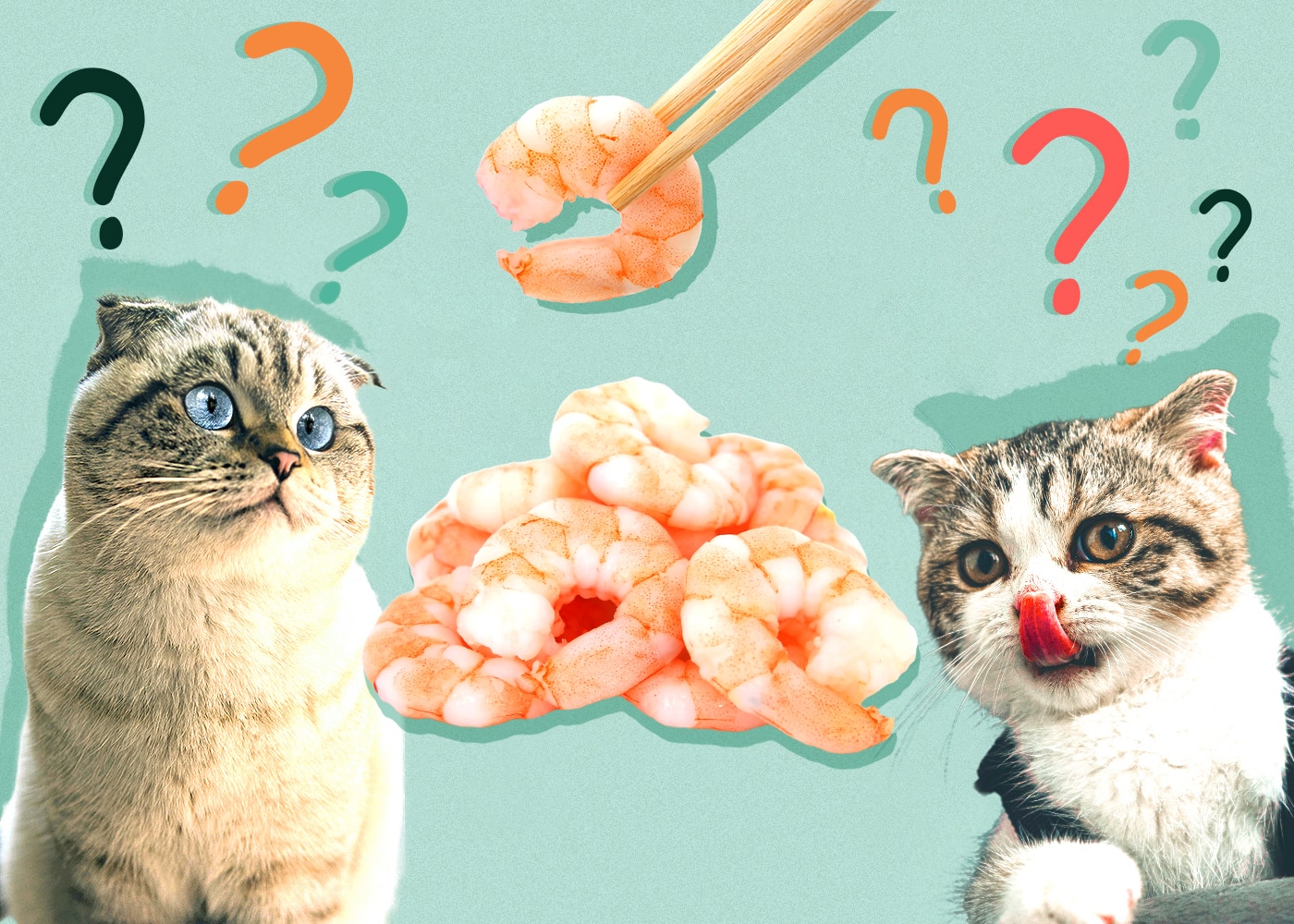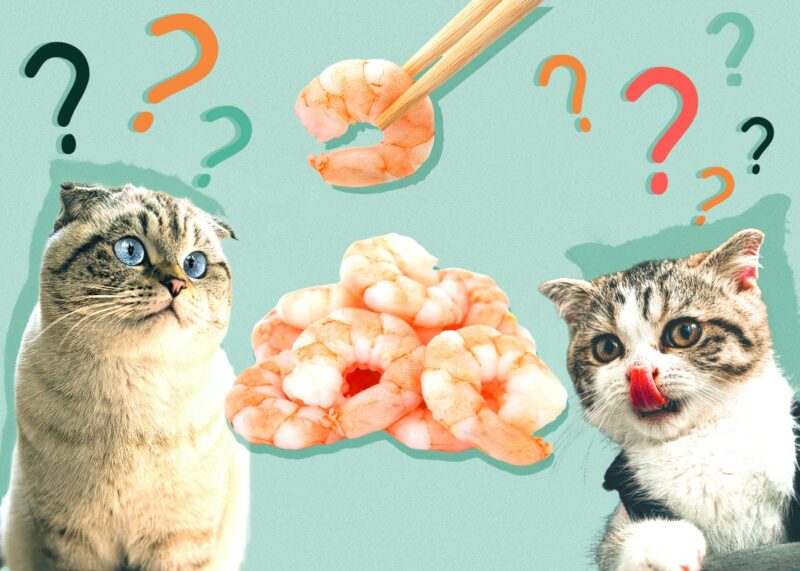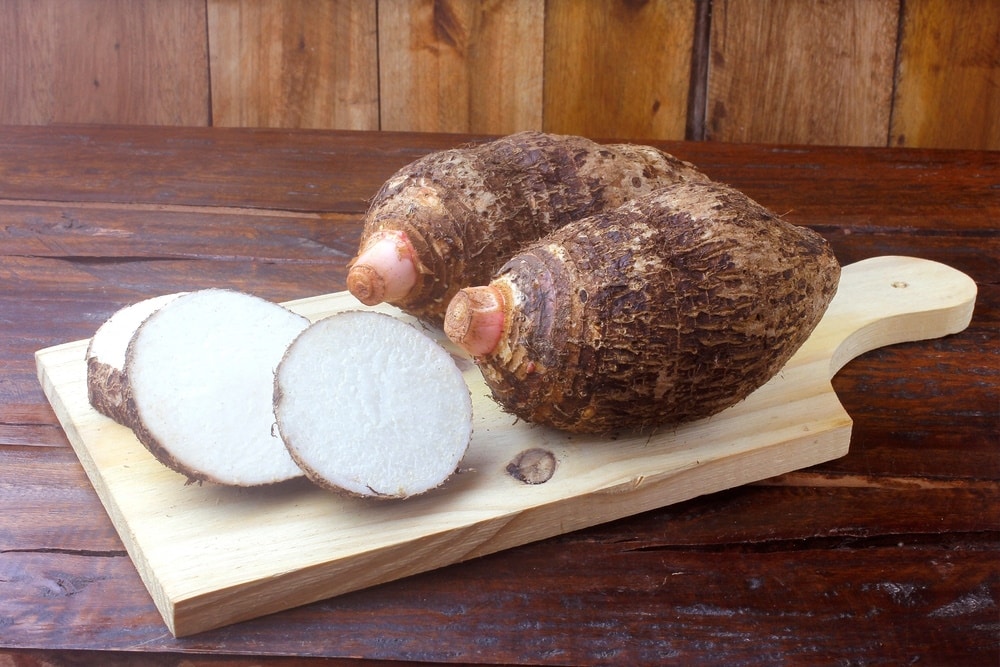Click to Skip Ahead
So, you know your cat loves fish, but she seems to be drawn to that shrimp you’re enjoying. Naturally, this will lead to your wondering if you can give your cat some of your shrimp.
Is shrimp safe for your cat to eat? The short answer is, absolutely! Shrimp is safe for your cat, but you should always speak with your vet if you’re considering adding human food to your cat’s diet, and there are a few rules to be aware of.
The Healthy Shrimp
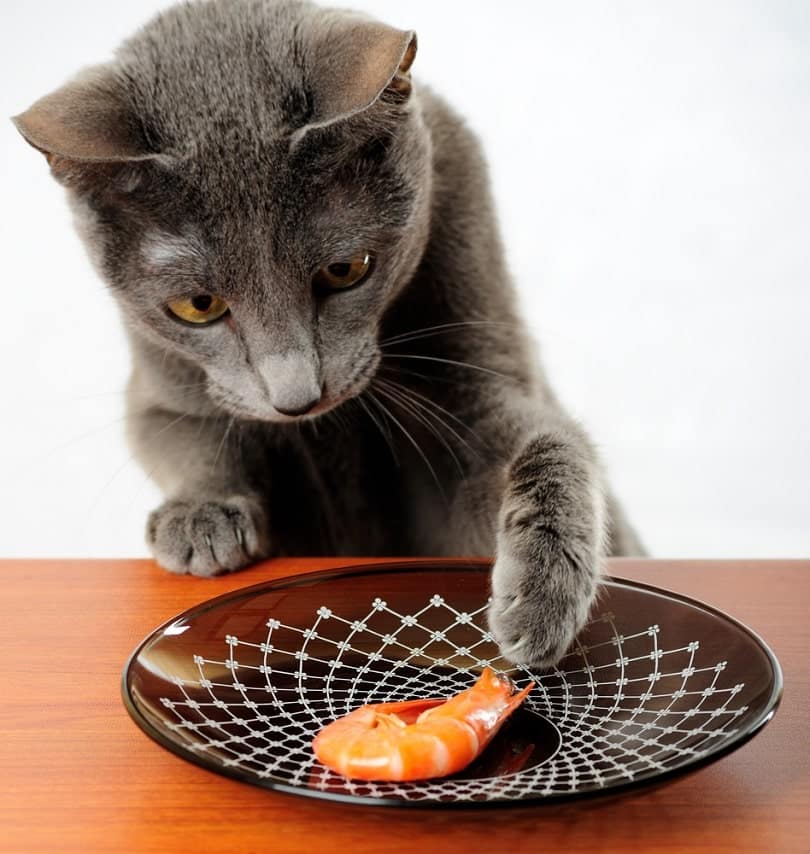
The shrimp is the most popular shellfish that people enjoy cooking and eating. It is estimated that the average person eats about 4 pounds of shrimp every year! Shrimp cocktail, coconut shrimp, or shrimp with pasta, there are numerous ways to eat and enjoy shrimp, but what about its nutrition?
Shrimp is very low in calories and carbohydrates and very high in protein. It also contains minerals like selenium, iron, phosphorus, magnesium, calcium, and zinc. In addition, shrimp is a fantastic source of omega-3 and omega-6 fatty acids as well as astaxanthin antioxidants.
We know that shrimp has some health benefits for people, but does it have the same benefits for our cats?
Shrimp and Your Cat
Cats are obligate carnivores, which essentially means they are “true” carnivores that require the nutrients that are only found in animal meat to survive. Shrimp is high-protein and low calorie and makes the perfect snack for a cat.
Do the same health benefits of shrimp for humans also apply to cats? Definitely!
- Boosting the immune system
- Heart and brain health
- Healthy coat and skin
- Maintaining a healthy weight
- Building muscle mass
Shrimp may provide some benefits for cats, but is there a downside for cats eating shrimp?
The Downside for Cats
It’s clear that shrimp makes a safe and healthy treat for your cat, but what about the negatives? There are a number of concerns you should be aware of.
While raw shrimp might be safe for your cat to eat on occasion, it’s best to give them cooked shrimp. Raw shrimp might contain bacteria such as Vibrio spp.
Seasonings and Ingredients
If you plan on giving cooked shrimp to your cat, it should be steamed or boiled without any added seasonings or ingredients—no butter, oil, sauces, or ingredients such as onions or garlic. Chives, shallots, and onions as well as garlic are toxic for cats and can cause stomach upset and anemia. Any added fats can lead to obesity and potentially lead to pancreatitis. For more information, the ASPCA has created a list of human foods that pets should avoid.
In Moderation
Shrimp should only be given on occasion as a treat and not as a meal replacement. Shrimp is high in cholesterol. In general, the average-sized cat shouldn’t be given more than half of a jumbo-sized shrimp at a time.
Shell, Head, and Tail
The tail, head, and shell of the shrimp should be removed before giving it to your cat as they can cause stomach upset or become a choking hazard. While eating the head or tail might generally not harm your cat, it’s better to be safe than sorry.
- Vomiting
- Loss of appetite
- Lethargy
- Straining
- Abdominal pain
You should take your cat to your vet if you observe any of these symptoms after eating shrimp shells.
Allergies
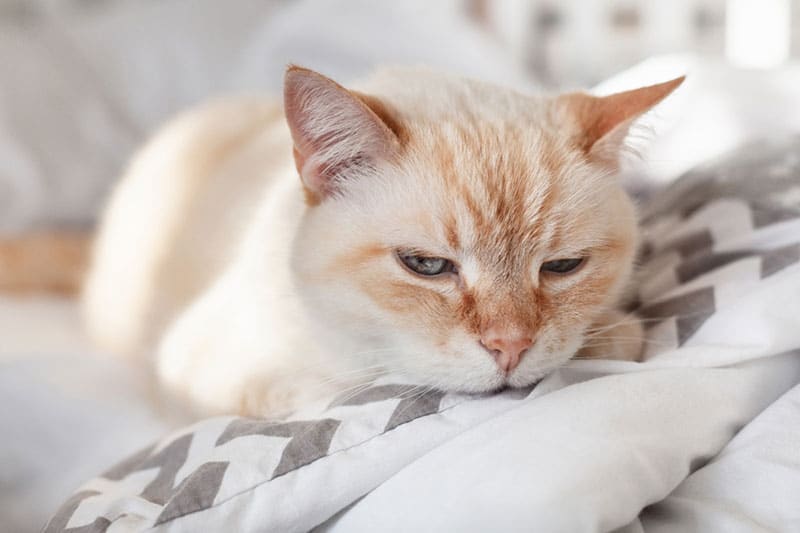
There’s always the possibility that your cat may have a food allergy to shrimp. Start by speaking to your vet before giving your cat her first taste of shrimp, particularly if she already tends to have food sensitivities. The first time you give your cat some shrimp, just provide her with a very small sample and keep an eye on her for a few hours.
- Hives and itchiness
- Facial swelling
- Diarrhea and vomiting (although skin problems are more common)
If your cat starts to come down with any of these symptoms, see your vet as soon as possible.
Also, if you notice that your cat becomes itchy after eating shrimp, this might be an indication of an allergic reaction.
Conclusion
So, feel free to give shrimp to your cat as an occasional treat. It’s full of protein and beneficial nutrients, and your cat will most certainly love it! Remember to serve it cooked without any added ingredients – steamed or boiled is best. Clean it thoroughly before cooking. And lastly, just give her a small amount: half a shrimp for an average to a petite-sized cat or a whole shrimp for a large cat.
Discuss the addition of shrimp to your cat’s diet with your vet before you actually give any to her, particularly if she tends to have allergies or sensitivities to other foods already. If you’re careful and give your cat some perfectly prepared, high-quality shrimp, she will more than likely enjoy this safe and delicious treat.

